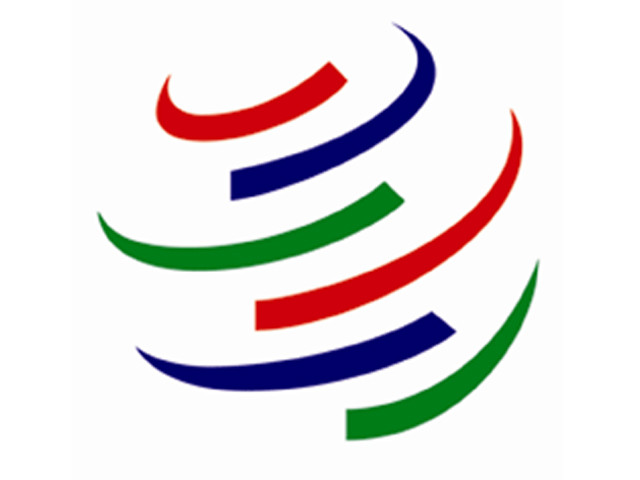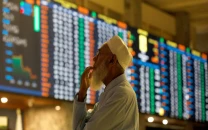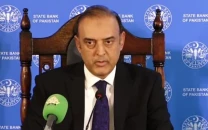Free Trade Agreements: Pakistan constrained by several factors
Country continues to rely heavily on tax from international trade

Country continues to rely heavily on tax from international trade. PHOTO: FILE
The thrust has been to address tariff and non-tariff measures so that the private sector can gain market access and compete in these markets.
The World Trade Organization (WTO), in one of its trade policy reviews of Pakistan, noted that “the proliferation of preferential arrangements elsewhere have increasingly penalised Pakistani exporters; this left the government no option but to negotiate with them to neutralise these disadvantages and maintain world trade shares”.
Pakistan has so far concluded bilateral trade agreements with Sri Lanka, Malaysia and China. It is also a member of SAARC Free Trade Area (SAFTA) where members have committed to eliminate tariff and non-tariff barriers for intra-regional trade.
The other important regions where Pakistan is seeking free trade alliance is ASEAN and the European Union (EU). ASEAN is a regional group of 10 countries in the Asia Pacific region with an ambitious political objective of creating a single common market and a monetary union.
So far, ASEAN members have been able to successfully implement a free trade area where intra-regional trade within ASEAN member accounts for 40% of their total trade. Pakistan sees ASEAN as a formidable emerging economy block with immense potential for enhancing country’s export. At present, the share of Pakistan is just 0.3% in the 2.4 trillion global trade of ASEAN members.
European Union and Pakistan
The European Union, which is a regional bloc of European states with a monetary and customs union for free movement of goods, services and capital is also important for the policymakers in Pakistan. The EU is ranked in the top position in the five largest economies in the world. In 2014, the total global imports of EU were $5.9 trillion out of which exports from Pakistan were $8.1 billion that is approximately 0.14% of the market share.
Pakistan was able to temporarily resolve the market access issue by successfully seeking entry through the GSP Plus scheme.
The inclusion of Pakistan was due to the success of trade diplomacy efforts of the government which convinced the EU to amend the criteria for membership despite intense opposition from the domestic industry especially the textile sector in Portugal, Spain and France. In return, Pakistan committed to ratify and implement the 27 core conventions relating to human rights and governance and open itself to the periodic review of the EU commission.
The implementation of tariff concession has been under severe scrutiny by stakeholders. The domestic industry is not comfortable on tariff elimination on a number of products. There are even indications that under tremendous pressure from the industry, Pakistan has requested China to reconsider the commitment already agreed as a prerequisite for further liberalisation.
Political economic trade
The political economic of trade is a reality and Pakistan is no exception. There are interests groups and lobbies that benefit from tariff barriers and would not like for them to open up for competition from imported goods.
The economists are unanimous that trade liberalisation accrue economic benefits and enhance overall welfare in a society. However, there are always losers and gainers in the process of liberalisation. It makes the job to the policymakers difficult and, under pressure from interest groups, they tend to move towards protectionism.
There are two arguments in its favour, first is nascent industry argument that advocates the necessity of tariff for industrialisation. The other emphasis to social cost relating to liberalisation which in the short term may lead to job losses. In the long run, economy will reallocate recourses from the in-efficient to efficient sectors and attain equilibrium.
The market access negotiations are based on full reciprocity. To gain market access, countries have to offer market access that requires strong political will and advocacy to counter protectionist tendencies.
In Pakistan, the policy space for the government to negotiate Free Trade Agreements is further constrained due to fact that 40% of total federal government revenues are from taxation on international trade.
As long as Pakistan relies on taxation on international trade as a primary and important resource of revenue and special interest group representing market competing sectors continue to wield influence in the public policy process, Pakistan will remain constrained in negotiating market access to enhance country’s exports.
THE WRITER IS A POLICY EXPERT WITH OVER 20 YEARS OF EXPERIENCE IN THE PUBLIC AND DEVELOPMENT SECTORS
Published in The Express Tribune, July 13th, 2015.
Like Business on Facebook, follow @TribuneBiz on Twitter to stay informed and join in the conversation.



















COMMENTS
Comments are moderated and generally will be posted if they are on-topic and not abusive.
For more information, please see our Comments FAQ